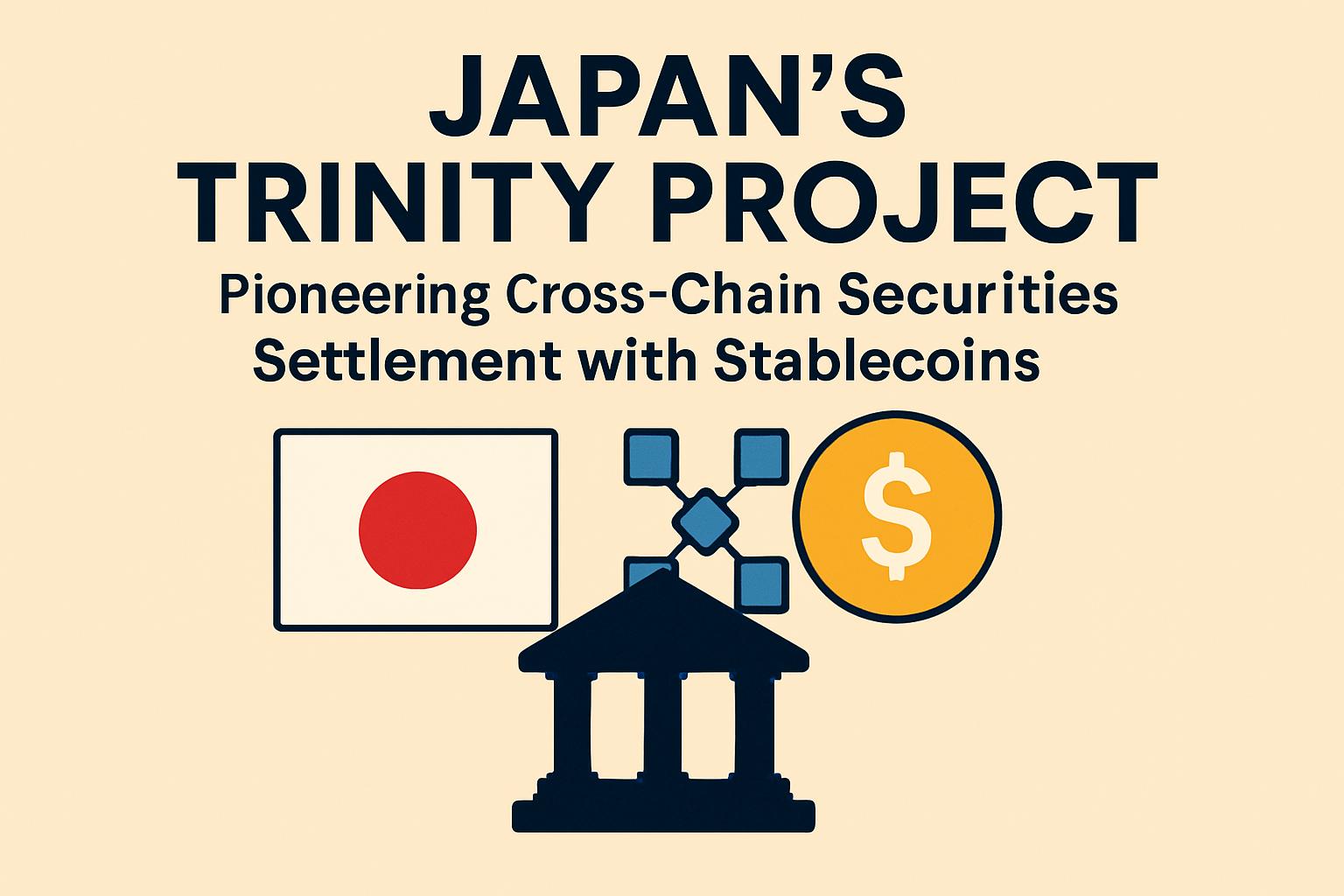In a move that’s captivating the global financial technology landscape, Japan is positioning itself as a leader in stablecoin innovation. By integrating traditional financial systems with blockchain infrastructure, Japanese financial institutions are redefining the future of cross-chain transactions. Notably, the first half of 2025 is witnessing the issuance of over $1.2 billion in stablecoins, marking a significant milestone in Japan’s payment innovations.
Among the trailblazers is the Trinity Project, a collaborative endeavor driven by prominent Japanese financial entities such as SMBC (Sumitomo Mitsui Banking Corporation), Progmat, Boostry, and Datachain. The project’s core mission is to utilize stablecoins to achieve cross-chain Delivery Versus Payment (DvP) settlements, a process facilitated by the cross-chain capabilities of TOKI within the Cosmos ecosystem.
Japan’s Evolving Financial Ecosystem
With recent legal amendments to the Payment Services Act, Japan’s stablecoin market is undergoing transformative changes. New regulations now allow banks and institutions to issue stablecoins in a compliant manner, ushering in an era where digital assets are integrating into mainstream finance. SMBC is actively exploring business applications for stablecoins, collaborating with partners like Ava Labs and Fireblocks.
Simultaneously, Japan’s security token market is experiencing exponential growth, having issued over ¥160 billion worth of security tokens in 2024. The anticipated growth heading into 2025 promises expansions into sectors like real estate and movable asset collateralization. The critical role of stablecoins in enhancing settlement efficiency and modernizing financial infrastructure hasn’t gone unnoticed by market stakeholders and regulators.
The Trinity Project’s Ambitious Goals
Spearheaded by notable Japanese banking and financial institutions, the Trinity Project aspires to establish atomic swaps for security tokens and stablecoins across different blockchains. This Drive for innovation reflects a significant upgrade to Japan’s secondary market infrastructure for security tokens. Unlike traditional systems that rely on centralized authorities, the project’s integration of blockchain smart contracts and cross-chain protocols enables real-time, seamless, and intermediary-free settlement processes.
TOKI and the IBC Protocol: Bridging Chains Securely
At the heart of the Trinity project’s cross-chain settlements is the collaboration with TOKI, a key player in the Cosmos ecosystem renowned for its pioneering Inter-Blockchain Communication (IBC) and Layer Cross Protocol (LCP) technologies. By providing a highly scalable, secure platform for cross-chain asset exchanges, TOKI’s no-permission, modular design outperforms traditional, isolated bridging solutions. This innovative framework has attracted traditional financial institutions like SMBC to integrate TOKI’s solutions into their operations.
Overall, the Trinity Project emblemizes Japan’s commitment to financial innovation and modernization. As both government and private sectors invest in stablecoin and blockchain infrastructure, the market is progressively advancing towards standardized, real-time, and decentralized financial operations. The success of Trinity has the potential to inspire countries worldwide, setting a new benchmark in securities and asset settlement protocols.

![[News] Bitcoin at a Turning Point? 10x Research Signals a Bullish Macro Shift Ahead](https://cryptoexplores.com/wp-content/uploads/2025/06/new20250616.jpg)
![[News] Binance Lists $HOME, the Gas-Free, Bridge-Free All-in-One DeFi App](https://cryptoexplores.com/wp-content/uploads/2025/06/news20250617.jpg)